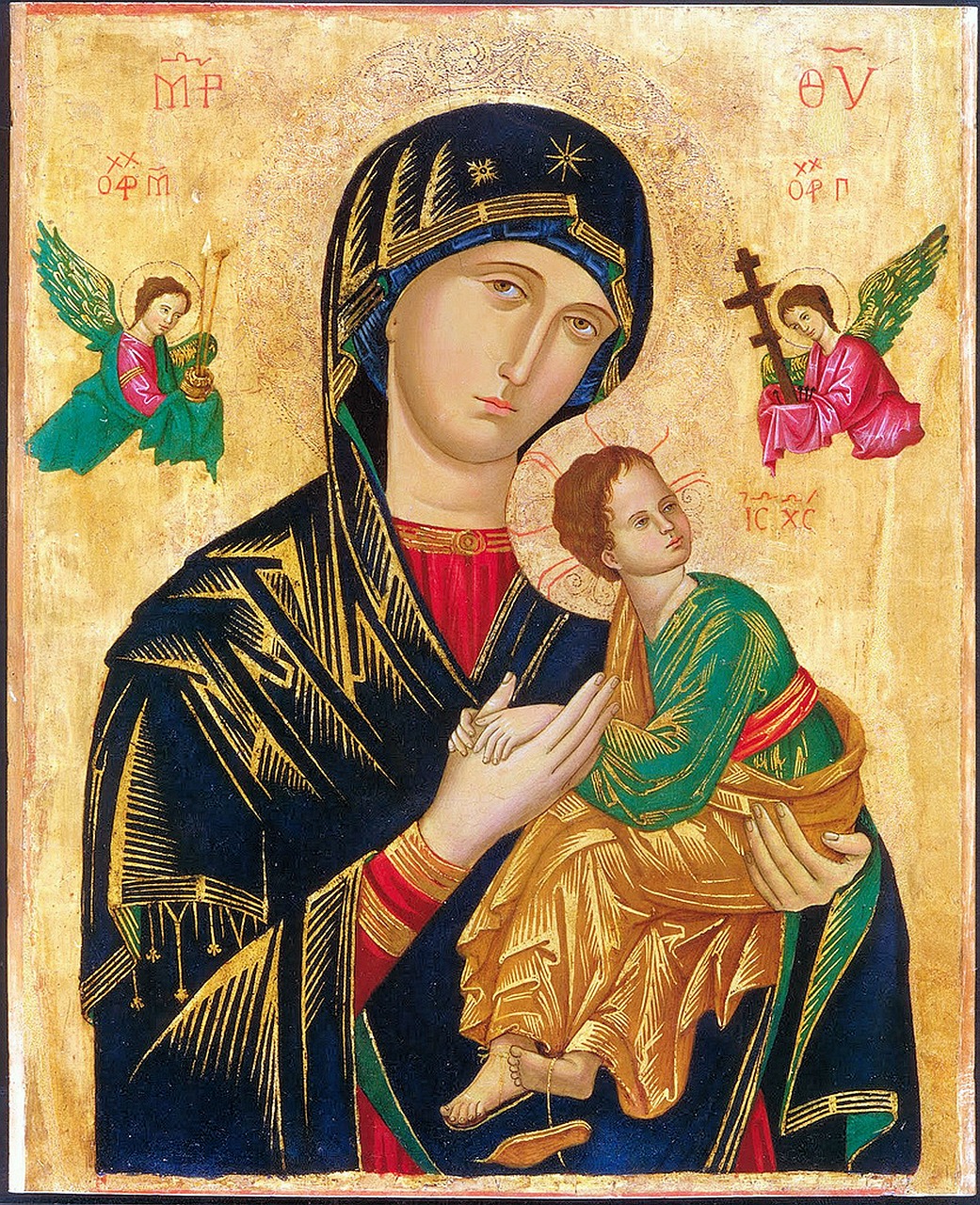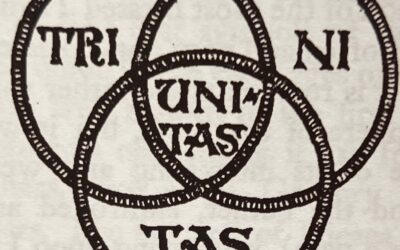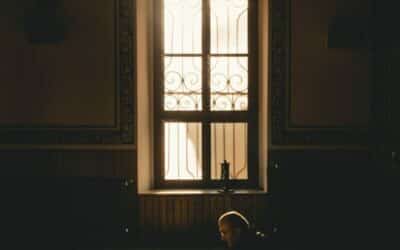When considering art within the Church, I think about sacred images, sacred music, and architecture.
The great icons, like the one atop this post, awaken and nourish faith.
Hymns moved St. Augustine to write: “How I wept, deeply moved by your hymns, songs, and the voices that echoed through your Church! What emotion I experienced in them! Those sounds flowed into my ears, distilling the truth in my heart. A feeling of devotion surged within me, and tears streamed down my face—tears that did me good.”
Our Churches are images of the heavenly Jerusalem:

Is catechesis, the handing on of the faith, art like that? Have I had an experience with catechesis that’s like my experiences with music, images, and architecture? Are verbal expressions of faith beautiful in the way that sacred art is?
Yes, and without a doubt.
I daily read the stunning wisdom of the saints:
Conscience is a law of the mind; yet [Christians] would not grant that it is nothing more; I mean that it was not a dictate, nor conveyed the notion of responsibility, of duty, of a threat and a promise.… [Conscience] is a messenger of him, who, both in nature and in grace, speaks to us behind a veil, and teaches and rules us by his representatives. Conscience is the aboriginal Vicar of Christ.
John Henry Cardinal Newman
I return to this bold and inspiring statement from the Roman Catechism:
From what has been said it follows that he who is gifted with this Heavenly knowledge of faith is free from an inquisitive curiosity. For when God commands us to believe He does not propose to us to search into His divine judgments, or inquire into their reason and cause, but demands an unchangeable faith, by which the mind rests content in the knowledge of eternal truth. And indeed, since we have the testimony of the Apostle that “God is true; and every man a liar’ (Rom. 3.4), and since it would argue arrogance and presumption to disbelieve the word of a grave and sensible man affirming anything as true, and to demand that he prove his statements by arguments or witnesses, how rash and foolish are those, who, hearing the words of God Himself, demand reasons for His Heavenly and saving doctrines? Faith, therefore, must exclude not only all doubt, but all desire for demonstration.
I marvel at the elegant synthesis of fundamental morals from the Catechism of the Catholic Church:
The dignity of the human person is rooted in his creation in the image and likeness of God; it is fulfilled in his vocation to divine beatitude. It is essential to a human being freely to direct himself to this fulfillment. By his deliberate actions, the human person does, or does not, conform to the good promised by God and attested by moral conscience. Human beings make their own contribution to their interior growth; they make their whole sentient and spiritual lives into means of this growth. With the help of grace they grow in virtue, avoid sin, and if they sin they entrust themselves as did the prodigal son to the mercy of our Father in heaven. In this way they attain to the perfection of charity.
My eyes have teared when I listened to these beautiful words sung during the Easter Vigil Mass:
This is the night,
when once you led our forebears, Israel’s children,
from slavery in Egypt
and made them pass dry-shod through the Red Sea.
This is the night
that with a pillar of fire
banished the darkness of sin.
This is the night
that even now, throughout the world,
sets Christian believers apart from worldly vices
and from the gloom of sin,
leading them to grace
and joining them to his holy ones.
This is the night,
when Christ broke the prison-bars of death
and rose victorious from the underworld…
Icons, hymns, and churches. The words of saints, catechism passages, and the liturgy’s prayers. They all lead us to the central focus of catechesis, Jesus Christ.
What is the art of catechesis? It is like this chant of the Lord’s Prayer in the language that the Lord spoke, bringing us into the ineffable, eternal, and reciprocal call between the Father and the Son:







0 Comments